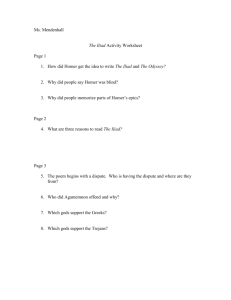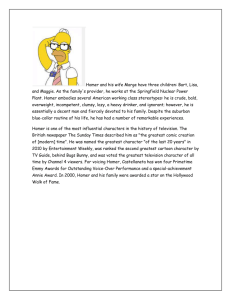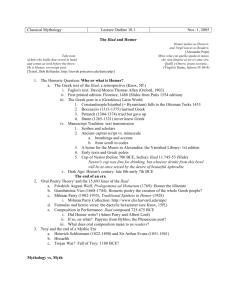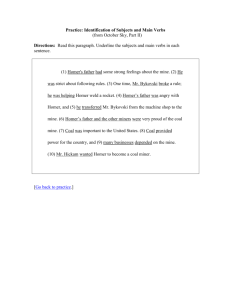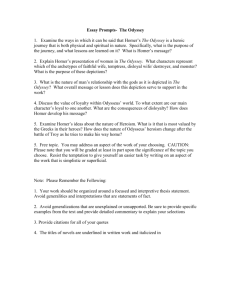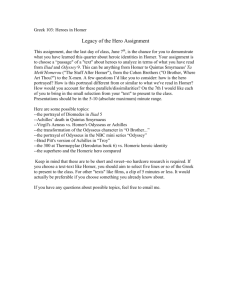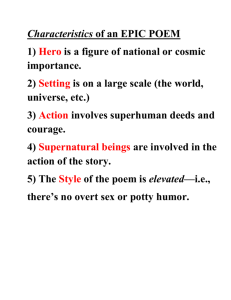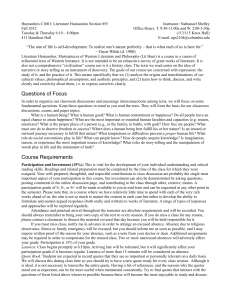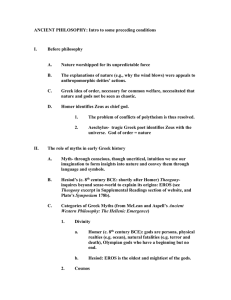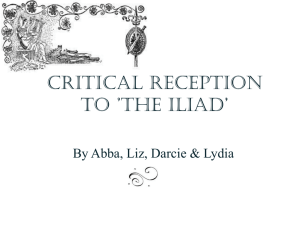Hum 110: The Iliad Study Questions Books 1
advertisement
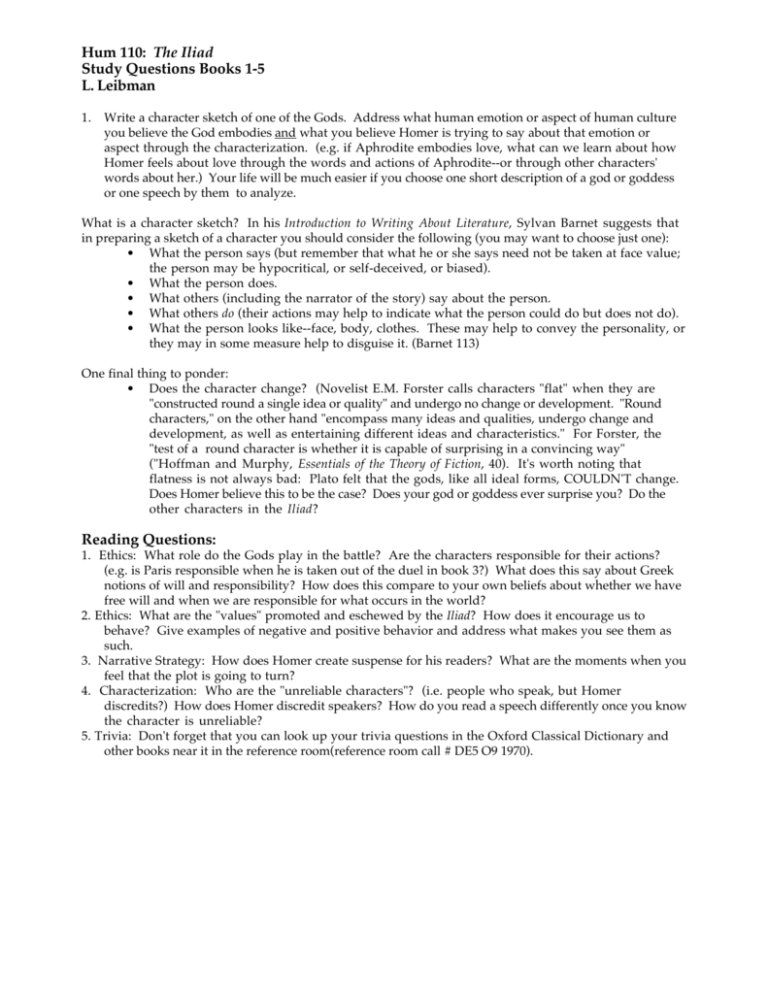
Hum 110: The Iliad Study Questions Books 1-5 L. Leibman 1. Write a character sketch of one of the Gods. Address what human emotion or aspect of human culture you believe the God embodies and what you believe Homer is trying to say about that emotion or aspect through the characterization. (e.g. if Aphrodite embodies love, what can we learn about how Homer feels about love through the words and actions of Aphrodite--or through other characters' words about her.) Your life will be much easier if you choose one short description of a god or goddess or one speech by them to analyze. What is a character sketch? In his Introduction to Writing About Literature, Sylvan Barnet suggests that in preparing a sketch of a character you should consider the following (you may want to choose just one): • What the person says (but remember that what he or she says need not be taken at face value; the person may be hypocritical, or self-deceived, or biased). • What the person does. • What others (including the narrator of the story) say about the person. • What others do (their actions may help to indicate what the person could do but does not do). • What the person looks like--face, body, clothes. These may help to convey the personality, or they may in some measure help to disguise it. (Barnet 113) One final thing to ponder: • Does the character change? (Novelist E.M. Forster calls characters "flat" when they are "constructed round a single idea or quality" and undergo no change or development. "Round characters," on the other hand "encompass many ideas and qualities, undergo change and development, as well as entertaining different ideas and characteristics." For Forster, the "test of a round character is whether it is capable of surprising in a convincing way" ("Hoffman and Murphy, Essentials of the Theory of Fiction, 40). It's worth noting that flatness is not always bad: Plato felt that the gods, like all ideal forms, COULDN'T change. Does Homer believe this to be the case? Does your god or goddess ever surprise you? Do the other characters in the Iliad? Reading Questions: 1. Ethics: What role do the Gods play in the battle? Are the characters responsible for their actions? (e.g. is Paris responsible when he is taken out of the duel in book 3?) What does this say about Greek notions of will and responsibility? How does this compare to your own beliefs about whether we have free will and when we are responsible for what occurs in the world? 2. Ethics: What are the "values" promoted and eschewed by the Iliad? How does it encourage us to behave? Give examples of negative and positive behavior and address what makes you see them as such. 3. Narrative Strategy: How does Homer create suspense for his readers? What are the moments when you feel that the plot is going to turn? 4. Characterization: Who are the "unreliable characters"? (i.e. people who speak, but Homer discredits?) How does Homer discredit speakers? How do you read a speech differently once you know the character is unreliable? 5. Trivia: Don't forget that you can look up your trivia questions in the Oxford Classical Dictionary and other books near it in the reference room(reference room call # DE5 O9 1970).

